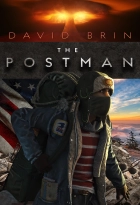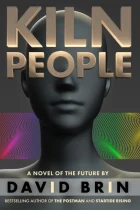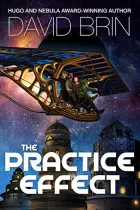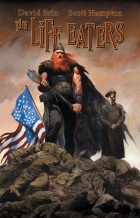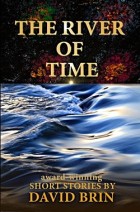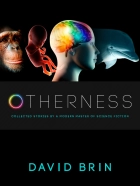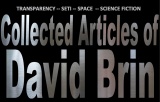The “Killer Bees” Letter – redux! (It’s more urgent and pertinent than ever…)
Science Fiction conquered the world. By far the most popular and lucrative sectors in cinema and gaming – for example – emerged like mighty titans from the tiny-despised larvae of sci fi pulps and novels bound by cheap mucilage. Oh, there is much to enjoy in these offspring SF Media. But only rarely do they convey the depth and breadth of character, or plot, or detailed world-building, or thoughtfulness that can be conveyed by the best literary SF.
And so a question for SF-Lit fans and readers. Will love of Poul Anderson, Ursula LeGuin, Alice Sheldon and Robert Sheckley fade away, when we’re gone? Or might we – the generation who mainlined on Lovecraft and McCaffrey and Silverberg – perhaps find a way to pass that love on to new generations?
That was the aim of a project that once seemed almost to gain traction in the SF fandom community. And maybe – just maybe – it’s time to try again, before the novel-and-story-reading generation shuffles off into obscurity, taking with us our love of black-squiggles-on-a-page.
Back in the 90s – along with fellow science fiction authors like the recently-late Greg Bear and Gregory Benford – I issued the “Killer Bees Letter” to the science fictional community asking that fan organizations start to act on their own charters, to “spread love of reading and science fiction to new generations.” We proposed that fan organizations might begin with the easiest and most efficient way to reach young readers.
No, I am not talking about standing outside a middle school in a trench coat, offering Heinlein or Andre Norton juveniles. (“The first one’s free!”) In fact the simpler (and far more legal) method – that was tried out in several places to great effect – is to start by ‘adopting’ just a few local teachers and librarians, those who are friendliest to science fiction, and helping them to accomplish what they already want to do!
In part, this could involve offering those SF-friendly educators one day passes to local science fiction conventions, enabling them to attend a special academic session (e.g. ‘teaching SF to young folks’) one morning… followed by half a dozen afternoon passes for their most-promising students and parents. Expensive? How, exactly? The marginal cost to the fan organization would be almost nil. In fact, the chance those kids will thereupon spread the word is worth trying!
The possible benefits – e.g. reversing the aging and decay of fandom – might be huge. And they were substantial… in the few places it was tried, back in the 90s. Alas, all-too few.
And so, here below is that original “Killer Bees Challenge” letter, as it was re-issued in 2003. Sadly, it is even more pertinent, today.
Using Science Fiction To Help Turn Kids on to Reading… And the Future!
© 2002 by David Brin
Consider the ages from twelve to fifteen, when a person’s sense of wonder can bloom or else wither, starved by ennui or seared by fashionable cynicism. Often it’s some small thing that can make a difference. An inspiring teacher or role model. A team effort or memorable adventure.
Sometimes even the right book or film can ignite a fire that lasts a lifetime.
For many of us, it was futuristic or speculative literature that helped cast our minds far beyond family, city, or oppressive peers… not to mention the limitations that others seemed bent on imposing, shackling our dreams. Whether in stories that spanned outer space, or adventures in cyberspace, or thoughtful ruminations about the mental life of dolphins or aliens, we discovered that the universe is larger than the local Mall. Both more dangerous and more filled with possibilities.
Once the sole province of nerdy young men, science fiction has become a central pert of our culture’s myth-making engine, now engaging girls, women, and adults of all ages and inclinations. Yet the breadth of SF and its ultimate importance can be difficult for a non-aficionado to grasp. After all, isn’t it all just spaceships, lasers and all that childish stuff?
Well, no it isn’t. As with any branch of human storytelling, science fiction has a spectrum of quality and depth, ranging from shallow Star Wars romps to the dark, serious explorations and world-shifting works of George Orwell, Aldous Huxley and Mary Shelley. A key element is fascination with change and how human beings respond when challenged by it. In other words, there is no genre more relevant to this rapidly transforming world we live in, where citizens are called upon to contemplate issues that would have boggled their grandparents.
Environmental degradation, the extinction and creation of new species, cloning, artificial intelligence, instant access to all archived knowledge and the looming prospect a generation – perhaps the very next one – that may have to wrestle with the implications of physical immortality.
Heady stuff! And you’d never imagine that any of it was under serious contemplation, if your idea of “sci-fi” came from movies! But these and a myriad other subjects are probed at the literary end of science fiction. In fact, some of the kids in today’s classrooms are wrestling with concepts at the very cutting edge — imbedded in tales they devour between colorful paper covers. Books that explore the edges of tolerance, like those of Octavia Butler and Alice Sheldon. Books that ponder biological destiny, penned by Greg Bear and Joan Slonczewski, or the physical sciences, by Robert Forward and Gregory Benford. Books designed by Julie Czerneda and Hal Clement to revolve around teaching themes. And those by Heinlein, Clarke and Kress and Bradbury, that instruct almost invisibly, because the authors were teachers at heart.
If high-end science fiction provokes wonder, thought and a sense of vigorous involvement with the world, can it be worth adding your arsenal of tricks and tools, ready to offer that hard-to-reach kid? Especially as an alternative to the violent fare in video games and the wretched pabulum that is on TV? What can be more relevant to bright teens, in their rapid-pulsed flux, than a literature that explores ideas and the possible consequences of change?
I can’t offer a tutorial on high-quality SF in this short space. So let’s do the next best thing – offer a short list of ways to help teachers, librarians and others bridge the gap between the simpleminded sci-fi images that are so popular in movies these days, and the real literary Science Fiction, where ideas flow and readers engage in truly exploratory adventures of the mind.
Using Web-based sites to create useful curriculum aids.
A new effort has begun, aimed at creating online resources for teachers wanting to bring good science fiction into their classrooms, as a way to excite topic-specific interest among students. Some use classic SF stories and novels to illustrate topics that are already in a teacher’s official study program. A teacher in Barstow, California created a good example, using my novel, The Postman, to elicit class discussions on issues in both literature and civics. Other teachers use stories to illustrate points in physics, chemistry, history, etc. When their materials – study guides and question sets – are distributed on the Web, they become a permanent help to teachers everywhere.
Here are just a few examples of sites for teaching science fiction.
Julie H. Czerneda’s Tales from the Wonder Zone helps teachers combine great stories with science curricula.
Teaching Science Fiction: Recommendations and Lesson Plans
Science Fiction Research Association
Using Science Fiction to Teach Science
Using Science Fiction in the Classroom
Creating new and better books for kids to read.
Consider this quandary. Science fiction images and adventures are more popular than ever, especially with young people. Yet, very little high quality science fiction is aimed straight for the vast market of adventure-minded teens. There is a market! Witness the success of Star Wars novelizations. Still, these factory-made series are missing something. Their exploits often follow the same hackneyed plot style. While the brightest teens soon graduate to reading more challenging books for grownups, many are discouraged by a scarcity of good, intelligent tales written just for them.
Some years back, I posted a list of Science Fiction Books for Young Adults.
Creating grass roots activism
Finally, there is the issue of what today’s science fiction fan community might do to help.
Fans are a special breed who maintain a belief that the future is a place that can be explored with brave adventures of the mind – adventures that may even help us avoid errors, the way George Orwell, Aldous Huxley and others gave warnings that helped divert us from dangerous paths.
The rest of this note is addressed to these aficionados of strong literary science fiction:
We’ve all heard about declining literacy in America. Sherry Gotleib tells that when she first opened the Change of Hobbit bookstore, in L.A., it thronged when the local junior high let out. Over time, these customers stayed loyal… but weren’t replaced. In the store’s final years, Sherry’s average customer was gray-flecked or balding, and the few teens who showed up focused on media or comics.
Polls show an aging of the SF readership. Science fiction themes are popular – in films, comix and games – but the genre’s literary heart faces demographic collapse. Worst of all, countless kids forget how to say the most beautiful word in any language – “Wow!”
That is where it all finally comes around. No altruism is more effective than the kind that begins at home.
Each of us lives near some school where bright kids now languish — bored, bullied, or unmotivated. Who among us can’t recall facing the same crisis once, in our own lives? For many, it was science fiction that helped us turn the corner. Science fiction welcomed us home.
As a community of science fiction fans and professionals, shouldn’t we make it our chief socially responsible activity to help expose another generation to a love of ‘the good stuff?’
For the last decade, ever since Greg Benford, Greg Bear and I first made this proposal, a number of SF oriented clubs and fan groups have focused their con-auctions, fund-raisers and charity drives toward raising helping SF literacy in their own communities. In many cases this meant “adopting” a local junior high school English teacher and/or librarian, finding out their needs and doing some of the following:
- Recruiting guest speakers to visit classes or school assemblies, giving inspirational talks about science, writing, or history… anything to fire enthusiasm and imagination at an age when these are precious, flickering things.
- Donating funds to buy SF books and sponsoring a reading club and/or writing contests, to encourage a love of SF and the creativity that helps produce more of it.
- Persuading bookstores to offer prizes and discounts for teens.
- Holding a special session at every local con, to which teachers and librarians are invited for free, to share ideas with fans and pros — then carefully using one-day passes to attract some of the brightest local teens+guardians to the con.
There is self-interest here. Authors who give talks often acquire new fans. Local conventions that sponsor a SF club may soon have new con-com members. If your charity auction sends $500 to the “Special Wish Fund,” you’ll get a thank-you note; but hand the same amount over to a stunned librarian and the photo will make your local paper!
Some committees, such as the Baltimore-based Worldcon, organized nationwide contests for SF-related stories, essays and artwork created by teens across North America, with awards and prizes to be presented at their convention. Others – in the Northeast especially – have followed suit. But we’ve only just begun.
Teacher/librarian mini-conference
One thing local conventions can do: Most fan organizations have in their charters a major provision for “outreach and education.” Yet, this seldom gets priority. Here is a relatively painless approach, already tried with success at several conventions, offering a win-win situation for all. The Saturday morning SF-education mini-conference.
It starts by simply gathering all the routine “SF/youth/education” panels into a cohesive group, then making a real effort to invite area teachers and librarians to attend that part of the con for free. (With reasonable upgrades for those wanting to stay.) Some teachers can then be recruited to help adjust next year’s program to their needs. In a year or two, the mini-conference can be granting credential credit with momentum all its own. Moreover, it can be a money-maker for the convention, as attendees convert their free half-day memberships and tell their friends! Later, corporate sponsorships become a real possibility.
With teachers and librarians aboard, you can generate great projects that involve kids in creative ways, for example by running a science fiction reading/writing/art contest in area schools, involving several grade levels, culminating in a grand awards ceremony at the local con. (With reasonable con memberships available to the winners, their parents, friends….)
This kind of thing has worked already! At science fiction conventions held in Baltimore, in Chicago, in Philadelphia and Salt Lake City.
If nothing else, running a focused “SF & Education Mini-conference” sure beats scattering the usual youth-and education related panels all over the weekend. It seems worthwhile to focus some effort on the future, since that’s what SF is all about.
So there it is. A general outline of some efforts that are currently underway, to use the most American form of literature – Science Fiction – in the cause of helping kids learn. So far, it is only a rough outline, with some sincere efforts being made along the way. This letter is not so much a prescription as a call for people to think about possibilities… how the literature that is most about foresight and hope can somehow influence both young people and society at large to do the one thing that separates humans from all other creatures of Earth, Sky or Sea…
Think ahead…. With respect,
David Brin






 In coming years the screenplay, as such, may become obsolete, both to sell an idea for filming and as a working production tool. Instead, a small team consisting of the writer, a computer-animator, a photographic specialist, a musical specialist and some voice actors might team up before hitting the studios with a pitch. Using animatics and integration technologies that already exist, such a team might create a complete 90 minute cinematic story wherein animated characters act and speak upon sets that are computer-merged from still-photos or video pans.
In coming years the screenplay, as such, may become obsolete, both to sell an idea for filming and as a working production tool. Instead, a small team consisting of the writer, a computer-animator, a photographic specialist, a musical specialist and some voice actors might team up before hitting the studios with a pitch. Using animatics and integration technologies that already exist, such a team might create a complete 90 minute cinematic story wherein animated characters act and speak upon sets that are computer-merged from still-photos or video pans.

 The Matrix
The Matrix

 1- similarity — make something similar to the object you seek to control. A voodoo doll of a person. Or a model of a valley where you want rain to fall.
1- similarity — make something similar to the object you seek to control. A voodoo doll of a person. Or a model of a valley where you want rain to fall.



 Another science fiction vision that came to mind, given evidence of recent efforts by foreign powers to sabotage our democracy and economy, is
Another science fiction vision that came to mind, given evidence of recent efforts by foreign powers to sabotage our democracy and economy, is 

 A few science fiction movies that have been particularly memorable to me:
A few science fiction movies that have been particularly memorable to me:


 This is the oldest cliché in science fiction. From Twilight Zone to The Outer Limits and One Step Beyond, they all did takes on the story of Adam and Eve — always ending with a male and female astronaut stranded on a planet. As have a number of
This is the oldest cliché in science fiction. From Twilight Zone to The Outer Limits and One Step Beyond, they all did takes on the story of Adam and Eve — always ending with a male and female astronaut stranded on a planet. As have a number of  Vernor Vinge (
Vernor Vinge (





 The fundamental premise of science fiction – in my opinion – is that children can learn from the mistakes of their parents. Not that they will! But this means tragedies and mistakes and pitfalls happen because we ignored warning signs. Because we made mistakes that did not have to happen.
The fundamental premise of science fiction – in my opinion – is that children can learn from the mistakes of their parents. Not that they will! But this means tragedies and mistakes and pitfalls happen because we ignored warning signs. Because we made mistakes that did not have to happen.











